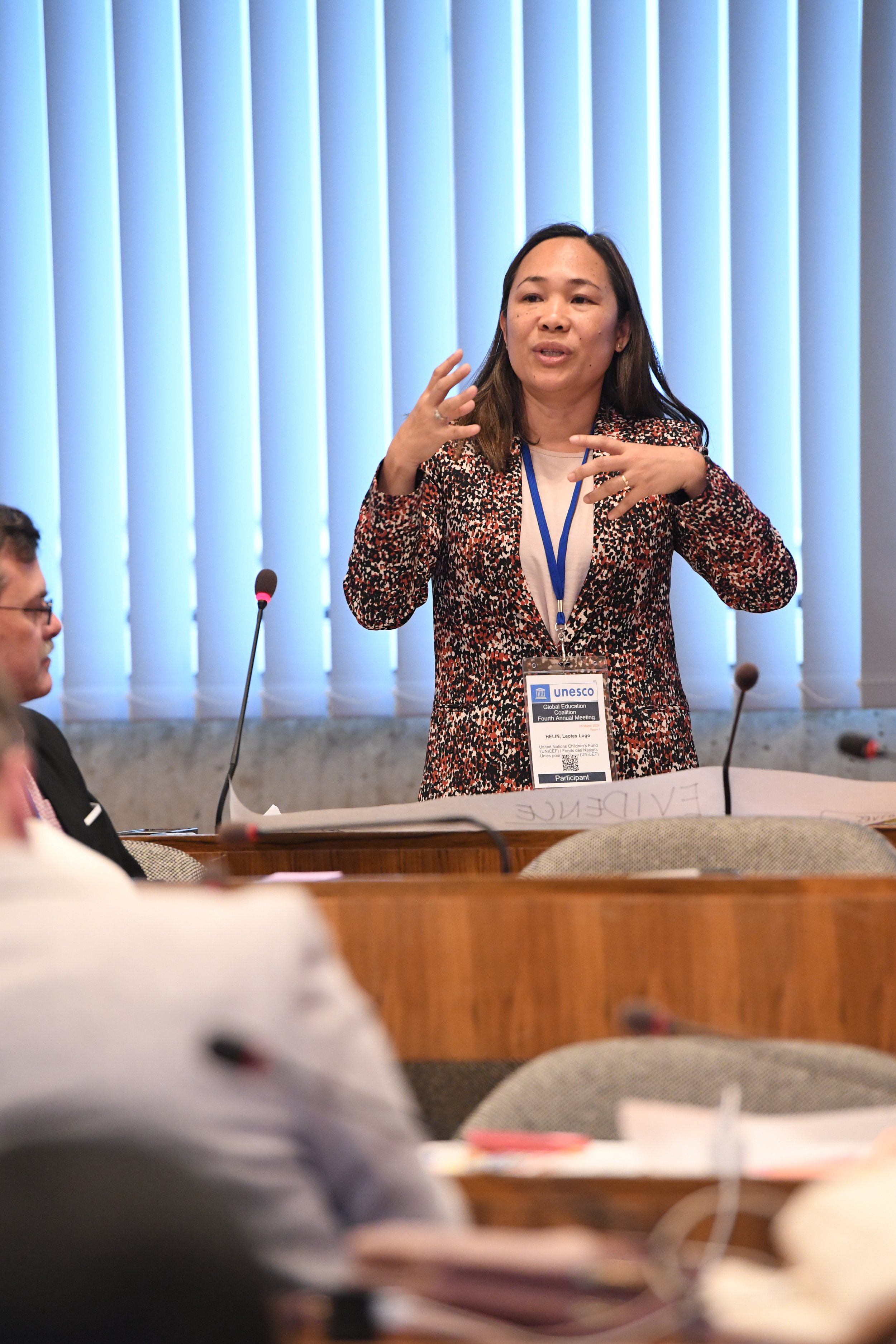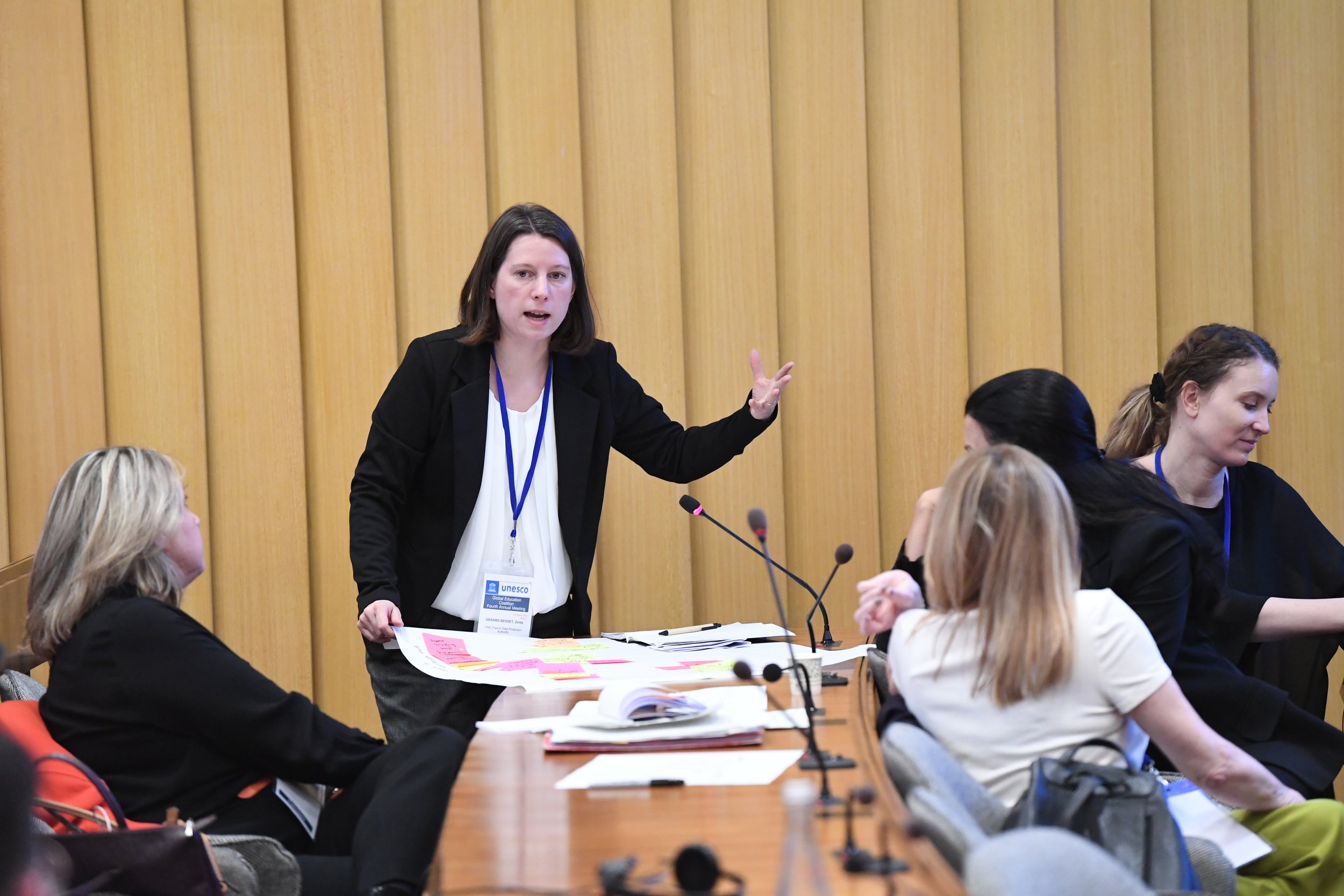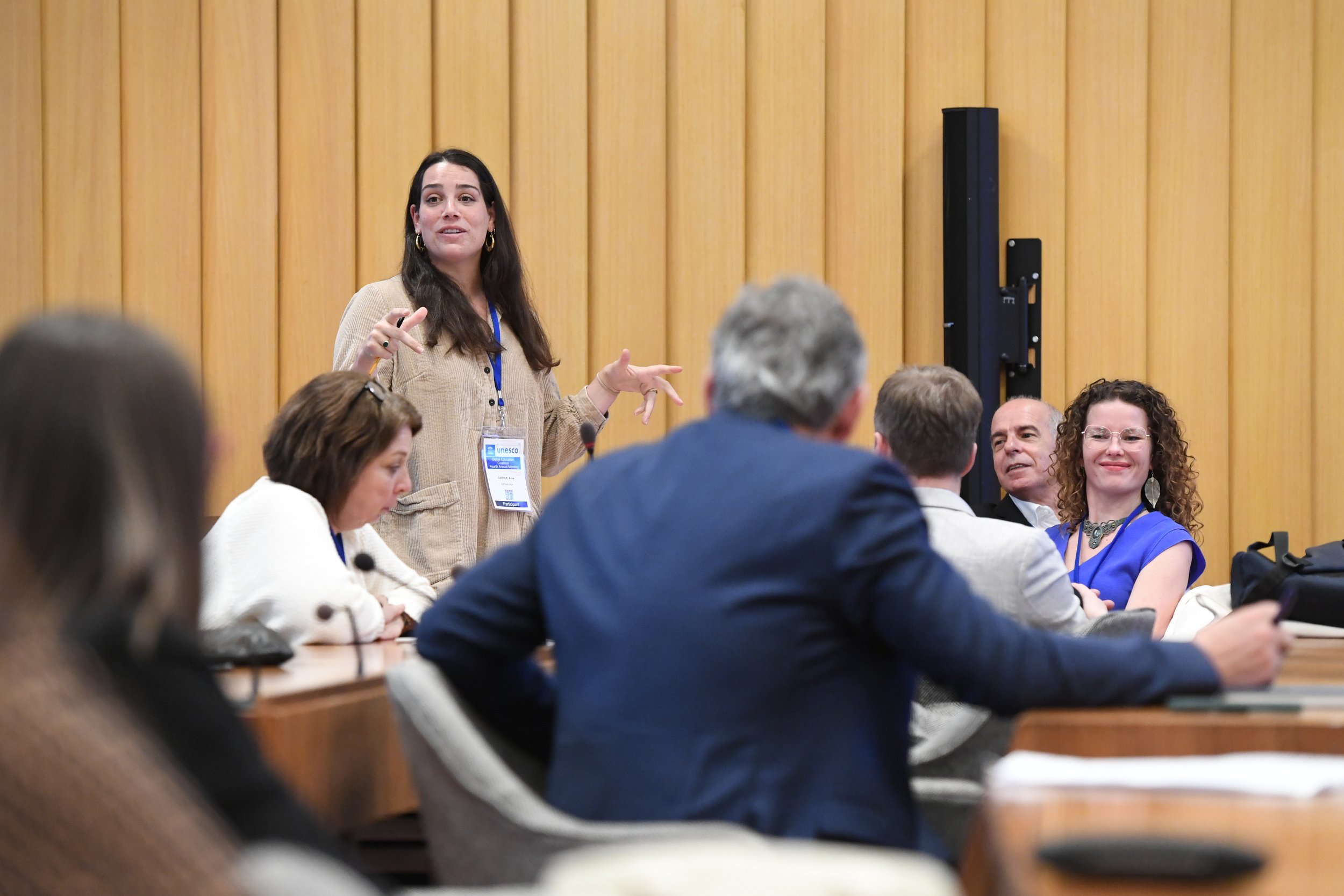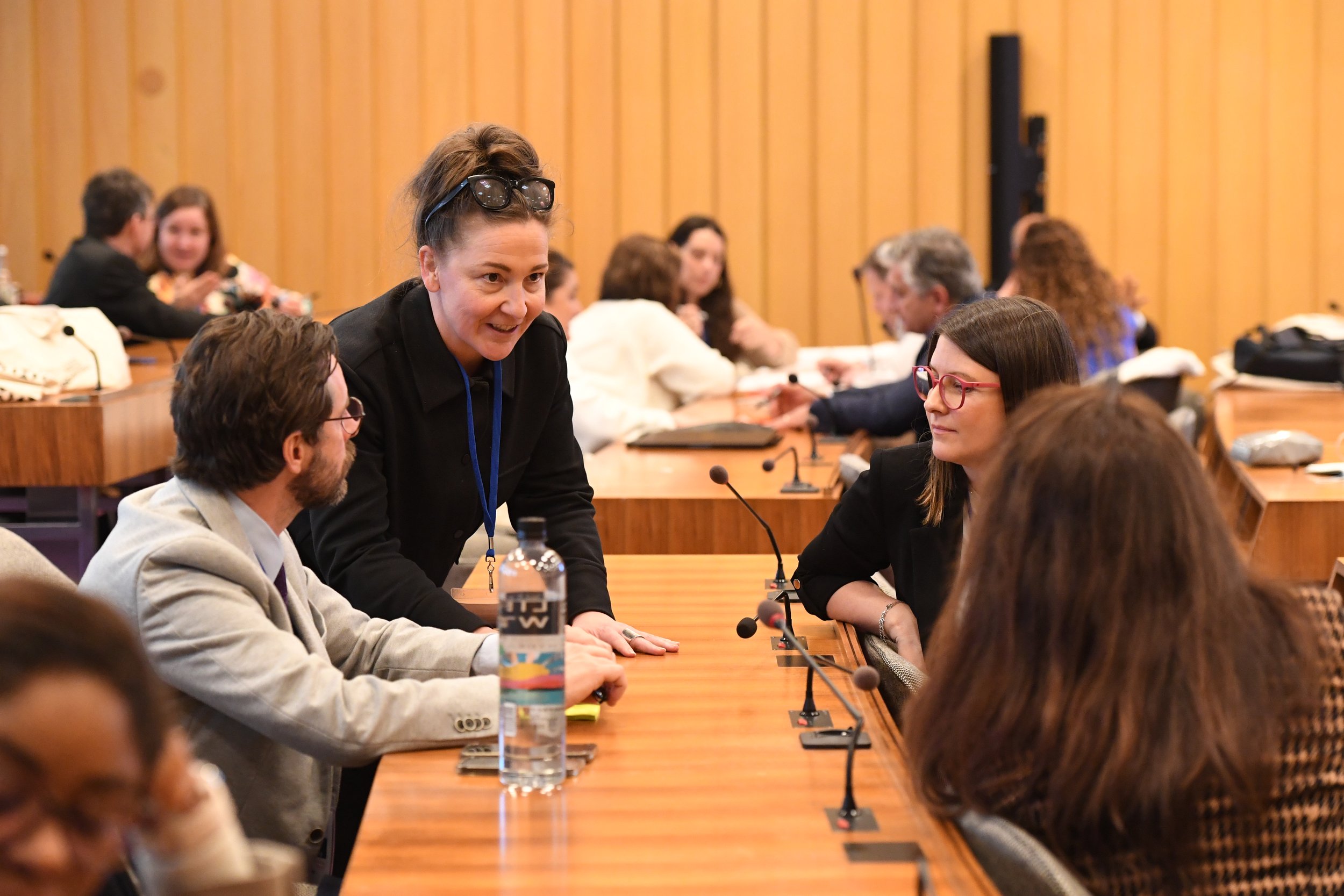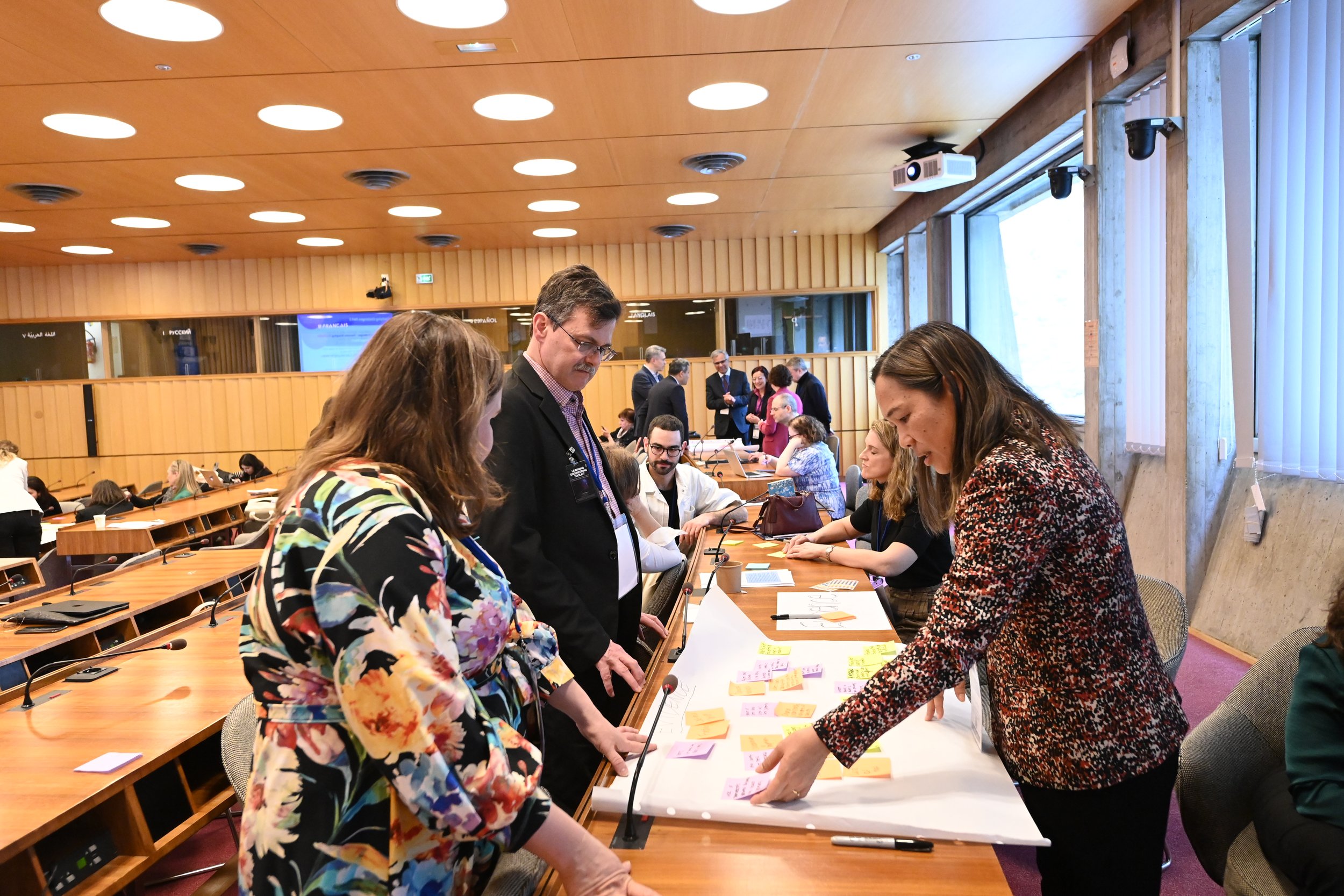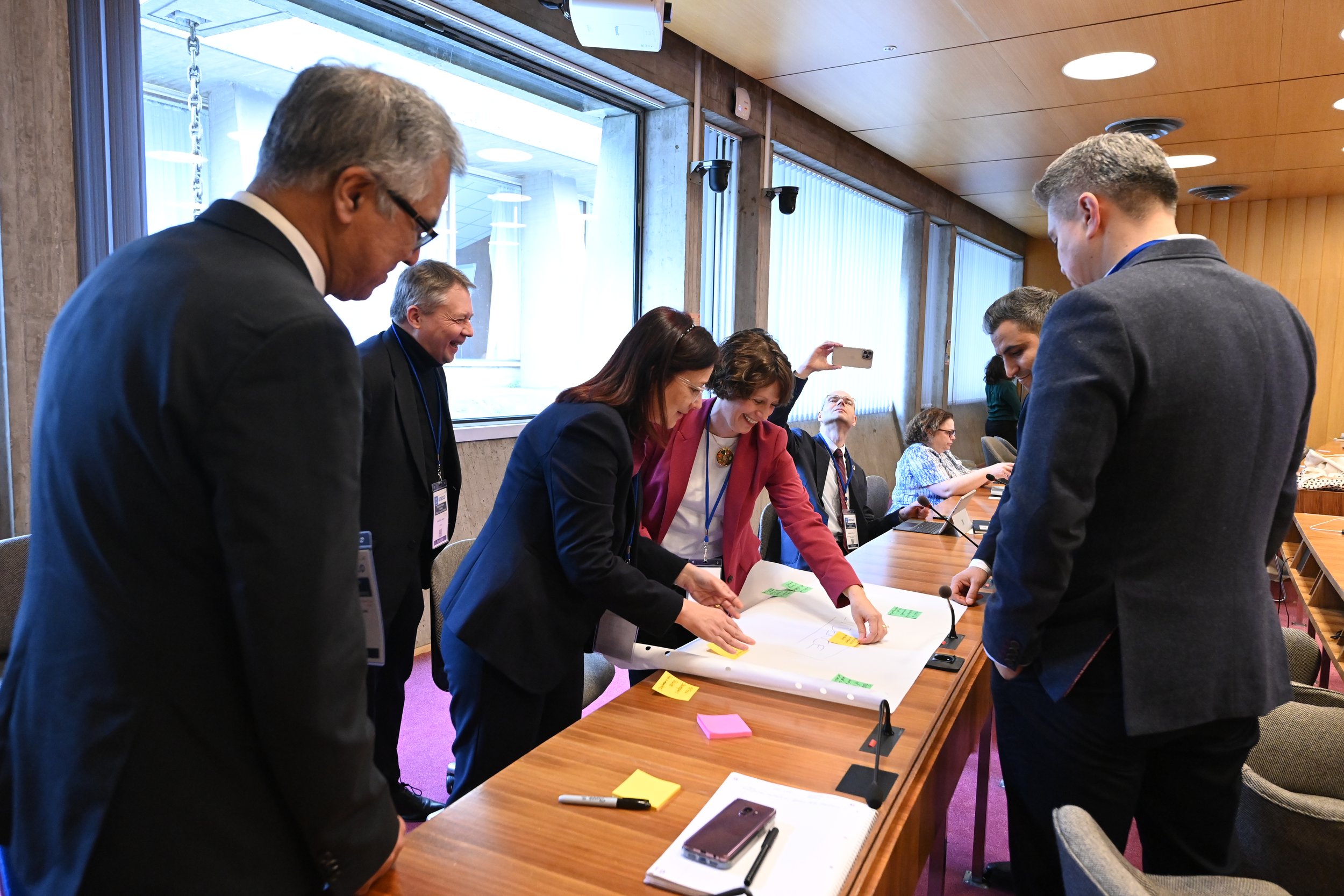Workshop Report: Forging Alliances in EdTech - A Pathway to Trust and Evidence
Collaborative Pathways for Quality Assurance in EdTech
The European Educational Alliance (EEA) supported by the Jacobs Foundation facilitated a dynamic workshop at the fourth annual meeting of the UNESCO Global Education Coalition on 25 March 2024. It was a hands-on, sleeves-rolled-up session contributing to a shared vision among key stakeholders regarding the formation and operation of a global EdTech alliance with quality assurance at its centre.
The Nexus of Alliances, Trust, and Evidence
The workshop unveiled the intricate interplay between alliances, trust, and evidence, revealing how these elements are not just interconnected but are fundamentally co-dependent:
Alliances are the bedrock, facilitating the generation of evidence and fostering trust among stakeholders.
Evidence, in turn, empowers alliances, bolstering their credibility and nurturing trust within the Ecosystem.
Trust is the cornerstone that sustains alliances, ensuring their longevity and impact.
This symbiotic relationship underscores the necessity of a holistic and collaborative approach to addressing the challenges in the EdTech landscape, emphasising that solutions must be multi-faceted.
Keynote Insights: Beth Havinga Unpacks EdTech Challenges - From Terminology to Trust, Evidence, and the Power of United Alliances
Setting the scene for the workshop, Beth Havinga's keynote brought to the forefront the need for nuanced discussions around what constitutes EdTech and the importance of distinguishing between technology used in education versus technology designed for educational purposes. Her insights into the predominance of micro-companies within the EdTech sector shed light on the complexities of regulation and evidence gathering, underlining the crucial need for clarity and intention in our approaches.
Diving deeper, Havinga tackled the multifaceted trust issue plaguing the EdTech space. With over 81% of users on Edtech platforms facing trust issues, she pointed out that trust—or the lack thereof—stems from several factors: the scarce evidence on the impact of EdTech solutions, the conflict between shareholder and societal values, divergent standards among regulators, and significant liability concerns for school leaders, especially around data protection, which are anticipated to intensify with the introduction of new regulations like the AI Act.
To navigate these trust issues, Havinga emphasised the critical role of evidence and testing. She cited a revealing statistic: 87% of respondents in the European EdTech Map believe that evidence-based testing could significantly boost trust. However, the current landscape of testing environments is fragmented, often excluding nascent companies, those focusing on niche subjects, or operating in specific educational sectors like K-12. This gap underscores the need for a comprehensive system that connects all segments of the EdTech ecosystem - including policymakers, researchers, startups, and educators - to facilitate meaningful exchanges around testing, evidence evaluation, and its application in practice.
© UNESCO/Cyril Bailleul
Building trust, according to Havinga, requires creating environments that nurture evidence and facilitate testing, promoting open dialogue about results, and establishing standardised, transparent ways of communicating product information. She also called for initiatives that address the diverse needs and solutions of multiple stakeholders.
On the issue of evidence, Havinga highlighted a stark reality: only 7% of EdTech tools are backed by rigorous evidence, and a mere 11% of decision-makers consider evidence when selecting EdTech solutions (Stanford Summit). To counteract this, she pointed to the European EdTech Map again, noting that approximately 52% of European EdTech organisations collaborate with research institutions. Despite the availability of various quality assurance frameworks, their lack of alignment and the general mistrust in the evidence they provide pose significant challenges. The lack of a multi-stakeholder approach, which would include industry input and teachers' needs in data interpretation, further complicates the situation.
Emphasising collaboration as the way forward, Havinga advocated for an "Alliance of Alliances," bringing together various groups - including national EdTech alliances, researchers, and educational organisations - to foster a climate of trust. Such collaborations, she argued, are essential for developing common frameworks, sharing knowledge and experiences, supporting decision-making, and representing topics in a neutral, digestible manner for higher-level uptake.
Reflecting on the EEA Member survey, the benefits of being part of an alliance were clear: developing common frameworks for better understanding, sharing evidence-based practices, and representing diverse topics at a higher level were among the top advantages cited. This collective wisdom underlines the potential of strategic alliances in overcoming the hurdles of trust and evidence in the EdTech landscape, setting a collaborative course for the future.
© UNESCO/Cyril Bailleul
Stakeholder Perspectives
Diverse voices from across the globe, including a mix of EdTech organisations, NGOs, foundations, and UN agencies, came together in this workshop to pinpoint the hurdles in the way of forming these crucial alliances.
Through engaging discussions and a Mentimeter survey, participants dove deep into the why and how of building strong, effective collaborations, focusing on the key challenges, obstacles and problems associated with the concepts of Alliances, Trust, and Evidence. The collaborative brainstorming and thematic grouping of challenges led to a rich exchange of ideas and insights, which will be instrumental in shaping the future direction of quality assurance in EdTech.
The discussions revealed that trust within educational technology serves as a cornerstone for a sustainable ecosystem, influencing the uptake and use of technologies, ensuring safety, safeguarding private data, and underpinning belief in the impact of EdTech solutions. Stakeholders underscored the necessity of fostering evidence through collaborative efforts, such as setting common standards for evaluation, incentivising learners and teachers to collaborate with solution developers, and advocating for the open sourcing of data to create a universal test bed for EdTech.
© UNESCO/Cyril Bailleul
The breakout sessions shed light on nuanced perspectives regarding alliances, trust, and evidence. Key challenges in forming alliances included the need for a clear common vision, the importance of a facilitator to navigate collaboration dynamics, understanding the diverse market dynamics and roles of public versus private entities, managing conflicts of interest, overcoming competition fears, ensuring inclusiveness beyond siloed alliances, and securing funding.
In terms of building trust, the conversations highlighted concerns about bias towards technology, the complexity of regulations, verifying the authenticity of companies' marketing claims, understanding how products were developed, privacy, and data protection, combating misinformation, and navigating the abundance of choices within a fragmented regulatory landscape.
The dialogue around evidence centred on defining what constitutes relevant and impactful evidence, standardising frameworks for evaluation, understanding and meeting teachers' needs for evidence, overcoming barriers to early and in-school testing, clarifying incentives for including evidence, addressing funding shortages for generating evidence, creating repositories for certifications, and tackling the challenges of assessing AI effectiveness in learning processes.
These insights from the workshop paint a vivid picture of the collaborative efforts required to advance the quality assurance of EdTech. By addressing these identified challenges, the community can move towards forming stronger, more effective alliances, building a foundation of trust, and creating a robust framework for evidence that supports the global education ecosystem.
© UNESCO/Cyril Bailleul
Building a Collaborative Future
The workshop concluded with an invitation to future sessions and an open call for contributions to the ongoing dialogue on quality assurance in EdTech. Participants were encouraged to engage further by sharing their insights, resources, and reflections on the workshop outcomes.
The insights gained through the workshop laid the groundwork for identifying problem statements that will guide future solutions aimed at building alliances around the topic of enhancing quality assurance in EdTech.
Bringing the workshop to a thoughtful conclusion, UNESCO’s Borhene Chakroun, Director of Policies and Lifelong Learning Systems Division and Coordinator of the Global education Coalition, emphasised the collective strength that could be harnessed through forming an "Alliance of Alliances." He highlighted the potential impact of such a unified approach:
If the EdTech ecosystem could speak with one aligned voice, it would significantly empower the international community in addressing the challenges and opportunities in leveraging technology to achieving Sustainable Development Goal 4 (SDG 4) - ensuring inclusive and equitable quality education and promoting lifelong learning opportunities for all.
Chakroun’s closing remarks served as a compelling call to action, urging the workshop participants and the wider EdTech community to embrace collaboration and shared vision as key strategies for transforming the landscape of education technology in alignment with global education goals.
We are grateful to our six table leads for guiding the discussions within their groups and skillfully consolidating the outcomes:
Jannie Jeppesen, Vd/CEO Swedish Edtech Industry & Chair of the EEA
Alice Carter, Delivery Lead, EdTech Hub
Leotes Helin, Education Manager, UNICEF Innovation Hub
Zelda Gerard-Besset, Legal Officer, Commission Nationale de l’Informatique et des Libertés
Mahyar Rahmantalab, Government Key Accounts Manager, BETT
Beth Havinga, Managing Director, EEA
© UNESCO/Cyril Bailleul
To participate in further strategy lab workshops, make sure to sign up: We look forward to having your voice join our work!






